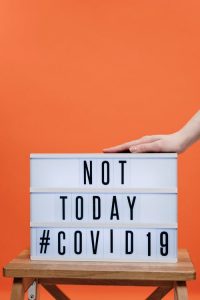Submitted by CCCL_MichelleK
 Many people are curious about what contact tracers do, and I’m happy to have the opportunity through this blog to give you a peek behind the scenes. We have a set of interview questions that we try to complete when we call, and we approach this as a conversation between our team members and our fellow humans and community members on the other end of the line. Our main goal is to provide the resources from our County Health Officer to help prevent further transmission of coronavirus, which we discuss over the phone, followed by documents sent out via email or postal mail.
Many people are curious about what contact tracers do, and I’m happy to have the opportunity through this blog to give you a peek behind the scenes. We have a set of interview questions that we try to complete when we call, and we approach this as a conversation between our team members and our fellow humans and community members on the other end of the line. Our main goal is to provide the resources from our County Health Officer to help prevent further transmission of coronavirus, which we discuss over the phone, followed by documents sent out via email or postal mail.
All the questions asked help us better understand the spread of COVID-19 and the communities it affects. All information collected is confidential and voluntary - public health protects your privacy, just like libraries do. We find out if the contacts have been tested, their results and if they’re experiencing symptoms. We review the list of common symptoms to be on the lookout for as well, since there are such a wide range that many people do not know of. We ask about health insurance, housing status, and pre-existing medical conditions so that we can prioritize help for people who may be at extra risk. We refer those contacts to “wrap-around services” provided by community and government organizations, for people who may need support getting food or other supplies, medical assistance in their homes during isolation or quarantine, care for pets, stable housing, or just someone to talk to so they are not alone. If you need assistance with those services today, please call the Crisis Center by dialing 211.
After collecting this information, we review the Health Office Order requiring people who are exposed to COVID-19 stay home until the end of their 14-day quarantine period. We then discuss how to monitor themselves and their household for symptoms, and how to reduce the risk that they transmit the virus to others in their household or family. This includes wearing masks, washing hands and surfaces frequently, staying separated in a room with good airflow, not sharing food or dishes/utensils, and others.
Be well. Stay safe. Wear a mask. Wash your hands. I hope to see you soon.
Your Librarian,
Michelle Krasowski
Pinole Library/Hercules Library



Add a comment to: Contact Tracer, Part Two: Behind the Phones – A Day in the Life of A Contact Tracer